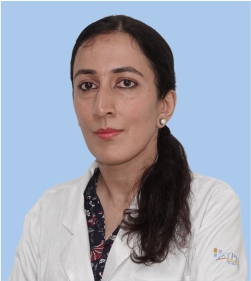Can Sinus cause Nosebleeds?

Quick Summary
- Sinus issues are one of the most common conditions that affect a large number of people worldwide
- Sinus conditions can cause headaches, pressure on the face, nasal congestion, fatigue and loss of sense of smell
- Nosebleed is one of the complications of sinus conditions
If the person struggles with headaches, pressure on the face, nasal congestion, fatigue and loss of sense of smell, he may suffer from sinus conditions. Sinus issues are one of the most common conditions that affect a large number of people worldwide. Sinuses-related conditions, such as sinusitis and rhinitis, result in several symptoms and complications. Nosebleed is one of the complications of sinus conditions.
Small hollow cavities in the skull are connected. These connected cavities are called sinuses. The sinuses are lined with a thin mucosal layer. The mucosal layer secretes mucus. Apart from the mucus layer, the sinuses are empty. The exact function of the sinus is not known. However, experts believe that the sinus helps to humidify the air a person breathes.
Sinuses may also help enhance the voice by reducing the mass of the skull, thereby improving voice resonation.
Symptoms of sinus conditions
The symptoms experienced by patients suffering from sinus conditions are:
- Sneezing
- Itching
- Nasal congestion
- Nasal inflammation
- Swelling around the nose, cheeks and forehead
- Reduced taste and smell
- Headache and ear pain
- Thick and discoloured nasal discharge


Can sinus conditions cause nosebleeds?
Some people may have nosebleeds with sinus conditions. There are several blood vessels in the nose, and minor injuries or trauma may result in nosebleeds. During sinusitis, there is inflammation and swelling in the nose. It leads to damage to the nasal blood vessels resulting in nosebleeds. Further, sinusitis may also result in nasal congestion and difficulty breathing. Some people blow their noses to clear the nasal passage. The force of blowing the nose may also cause damage to nasal blood vessels resulting in nosebleeds.
Causes of sinus conditions
Some of the causes of sinus conditions are:
- Sinus infection: Sinus infection may result in acute and chronic sinusitis. Most cases of acute sinusitis may be due to the viral infection that results in the common cold. However, in some cases, the patients may also have bacterial sinusitis. Respiratory tract infection may cause chronic sinusitis. The disease thickens and inflames the sinus membrane and blocks mucus drainage.
- Allergic reactions: The allergic reactions due to pollens, pet dander, dust mites, and other allergens cause inflammation and block the sinuses.
- Deviated septum: In some patients, there is a deviation of the nasal septum towards one side. The airflow from a nostril is blocked, resulting in sinusitis.
- Turbinate hypertrophy: Bony structures in the nose are termed turbinates. Turbinate hypertrophy is when the mucus layer covering the turbinates becomes inflamed and swollen. It may result in acute sinusitis.
- Nasal polyps: In this condition, the patient has small growth in the nasal cavity due to several causes, including sinus infections, asthma, and allergic reactions.
- Underlying medical conditions: Other underlying medical conditions that may cause sinus problems are autoimmune disease, HIV, and cystic fibrosis, which results in nasal blockage.
Prevention of sinus conditions
Sinus conditions can be prevented through the following measures:
- Avoid exposure to allergens and keep the symptoms under control.
- Stay away from people suffering from colds or having other infections.
- Always wash your hands before the meal.
- The patient should add moisture to the air with a humidifier. Humidifiers should be regularly cleaned to avoid mould development.
- Do not smoke a cigarette and avoid exposure to polluted air.
Diagnosis of sinus conditions
Sinus conditions can be diagnosed through the following methods:
- Physical examination: The doctor comprehensively evaluates the patient and seeks detailed information about the symptoms the patient is experiencing. The doctor may also examine the nose for tenderness.
- Imaging techniques: The doctor may also recommend imaging studies, such as a CT scan, to determine suspected complications and abnormalities. However, the doctor may not usually recommend imaging methods for uncomplicated acute sinusitis.
- Nasal endoscopy: The doctor inserts the endoscope, a long thin tube with a camera, into the nose. It will assist the doctor in visualising the sinuses to determine any swelling or inflammation.
- Allergy testing: The doctor may also perform the allergy test that will help to determine the type of allergen causing the allergic reaction. The doctor advises the patient to stay away from the allergen.
- Sample culture: If a bacterial infection is suspected, the doctor recommends the culture of the sinus and nasal samples to confirm the presence of bacterial infection.
Treatment of sinus conditions
Several treatment options may help in relieving sinus symptoms. Some of them are:
- Medications: Several medications help in relieving the symptoms of sinus conditions. Some include decongestants, antibiotics, oral, injectable, nasal corticosteroids, and anti-allergic drugs.
- Nasal irrigation: The patient may also have nasal irrigation to reduce the blockage and clear the nasal passage.
- Immunotherapy: The doctor may also advise the patient to undergo allergy shots to reduce the allergic reactions from a specific allergen.
- Surgery: Surgery is the only option when the medications and other non-invasive options fail to relieve the patient. The doctor performs the surgery to remove the blockage, such as nasal polyps or turbinate hypertrophy.
Conclusion
Last Updated on: 29 November 2022
Reviewer

Dr. Aman Priya Khanna
MBBS, DNB General Surgery, FMAS, FIAGES, FALS Bariatric, MNAMS General Surgery
13 Years Experience
Dr Aman Priya Khanna is a highly experienced and National Board–Certified Laparoscopic, GI, and Bariatric Surgeon with over 13 years of clinical expertise.
He is widely regarded as one of the best bariatric surgeons in Ahmedabad, ...View More
Author

An enthusiastic writer with an eye for details and medical correctness. An avid reviewer and publisher. She emphasises authentic information and creates value for the readers. Earlier, she was involved in making ...View More
Expert Doctors (10)
NABH Accredited Hospitals (6)
Latest Health Articles
Related Treatments




















 Open In App
Open In App